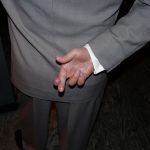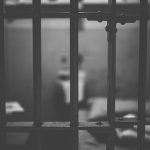Should lie detectors be used in Australia?

The law says that the prosecution must prove a case beyond reasonable doubt in order for a person to be found guilty of a criminal offence.
But in reality, many cases are decided upon whichever party comes across as credible and reliable; in other words, who the court believes.
This is especially so where the alleged incident occurs indoors, such as most domestic and sexual assaults.
But not everyone who comes across as honest to police and the court is actually telling the truth.
So wouldn’t it be nice if we had a foolproof way of knowing who was telling the truth and who was lying?
Some believe that polygraphs, or “lie detectors”, may be the answer.
How do lie detectors work?
Lie detectors work by looking for certain physical changes such as pulse rate, blood pressure and respiration when people give a dishonest answer.
The polygraph does not actually tell you that a person has ‘lied’; instead it produces a reading of the subject’s autonomic immune system.
That reading is then analysed by a polygraph examiner, who gives an opinion about whether the person was honest or otherwise.
Are they reliable?
Although polygraph companies claim that their devices are accurate, this is far from the truth.
Different people can react differently under intense questioning.
Some, including “psychopaths”, have been shown to remain calm under pressure regardless of the nature of the questions.
Others tend to become nervous when asked questions that are obviously important, such as “did you kill ‘x’”, even though they are completely innocent.
To add to the problem, certain officers of the US military are ‘trained’ to beat polygraphs by creating and maintaining a constant level of anxiety.
Consistent with this is the idea that some people are able to fool polygraph machines by intentionally creating pain and/or anxiety during the interview: which is sometimes called the ‘thumb tack in the shoe trick’.
The idea is that by inflicting pain during the ‘easy’ questions, they will distort the overall reading of the polygraph, which will not be able to distinguish between the truthful and untruthful answers.
The outcome is that there have be numerous reported examples of innocent people failing polygraphs and vice versa.
Judgment and human error can also be factors, and there have been instances where polygraph examiners have come to different conclusions from the very same polygraph readings.
Are they admissible as evidence in court?
The results from lie detectors cannot be used in NSW courts.
Section 6(1) of the Lie Detectors Act 1983 (NSW) states that the output from a lie detector, and any opinion based on that output, is inadmissible in court.
It is also an offence for a person to use a lie detector to establish whether or not a person is guilty of any crime that is punishable by a fine or imprisonment.
Lie detectors are also banned in a range of other situations.
For example, employers cannot use lie detectors to test an employee’s honesty, or for training purposes, or during the job application process.
And insurance companies are not permitted to use them when evaluating an insurance claim.
A year before the Lie Detectors Act was passed, the case of R v Murray (1982) found that it would be inappropriate to allow polygraph readings into the courtroom.
The judge in that case found that the main purpose of using the particular lie detector reading was to bolster the credibility of the defendant – which was a matter for the jury to assess, not the lie detector or its examiner.
The judge concluded that polygraphs have no place in NSW criminal trials.
Significantly, lie detectors cannot be considered ‘expert evidence’, as a polygraph is a machine, not a person.
And the person who interprets the machine is currently considered to be as assessor rather than an expert.
Are they admissible as evidence in other jurisdictions?
In some of the United States, the results from polygraphs are allowed in criminal trials, but only if both parties agree.
Other United States have banned the use of polygraph results in criminal trials altogether.
Use in Australia
Companies that sell lie detectors claim that their instruments provide an easy way for parents to find out what their kids are up to, and to help partners uncover infidelity in their relationships.
They are legal to sell and purchase in Australia – but you might wonder what sort of a situation would warrant sitting your kid or partner down, hooking them into a machine and getting them to answer a series of questions!
And to the dismay of polygraph companies, it doesn’t look like lie detectors will be making an appearance in Australian courtrooms anytime soon.






